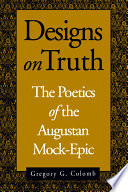 | Sir Henry Craik - 1895 - 670 páginas
...truths, which will always be the same : he must therefore content himself with the slow progress of his name ; contemn the applause of his own time, and...generations ; as a being superior to time and place. " His labour is not yet at an end : he must know many languages and many sciences ; and, that his style may... | |
 | 1907 - 506 páginas
...truths, which will always be the same; he must therefore content himself with the slow progress of his name; contemn the applause of his own time, and...generations; as a being superior to time and place. "His labor is not yet at an end; he must know many languages and many sciences: and, that his style may... | |
 | 1927 - 954 páginas
...laws and opinions, and rise to general and transcendental truths, which will always be the same. . . . He must write as the interpreter of Nature, and the...generations, as a being superior to time and place. Although Blake himself paid little heed to inanimate Nature, his attitude on this question of generalisation... | |
 | Jacob Opper - 1973 - 234 páginas
...; to remark general properties and large appearances ; he does not number the streaks of the tulip. He must write as the interpreter of nature and the...future generations, as a being superior to time and place.45 An even more revealing statement with respect to the primacy of sensory experience and its... | |
 | Douglas Lane Patey, Timothy Keegan - 1985 - 280 páginas
...proverb to you," Keats said, "till your life has illustrated it." 7 The poet, according to Imlac, must "consider himself as presiding over the thoughts and manners of future generations; as a being superiour to time and place" (chap. 10). That is precisely the attitude struck by the Olympian narrator... | |
 | Gregory G. Colomb - 1992 - 260 páginas
...Poetry, "are the unacknowledged legislators of the world." Dr. Johnson thought much the same: "The poet must write as the interpreter of nature, and the legislator of mankind" (Rasselas, X). The youthful Pope saw himself as a legislator who "restor'd Wit's Fundamental Laws"... | |
 | Kristina Straub - 1987 - 260 páginas
...of his age or country; he must consider right and wrong in their abstracted and invariable state ... he must write as the interpreter of nature, and the legislator of mankind . . . he must know many languages and many sciences . . . " (R 10.28-29). At this juncture, the narrator... | |
 | Timothy J. Reiss - 1992 - 412 páginas
...to ennoble themselves was by true patronage." The poet, said Imlac to Rasselas in Johnson's novel, "must write as the interpreter of nature and the legislator...future generations, as a being superior to time and place."44 We are familiar with PB Shelley's similar claim,- yet he would go even further: "Poets are... | |
 | John Barrell - 1995 - 384 páginas
...laws and opinions, and rise to general and transcendental truths, which will always be the same. . . He must write as the interpreter of nature , and the...thoughts and manners of future generations; as a being superiour to time and place.32 The similarity of this description of the tasks of the poet, with Reynolds's... | |
 | Robert Andrews - 1997 - 666 páginas
...words. In his History of Rasselas (1 759) eh. 10, Dr. Samuel Johnson similarly wrote that the poet "must write as the interpreter of nature, and the...over the thoughts and manners of future generations." In our own century, WH Auden wrote — in The Dyer's Hand — "'The unacknowledged legislators of the... | |
| |